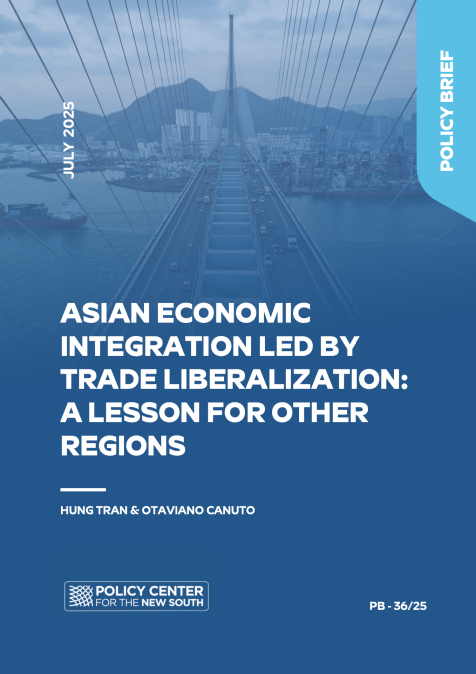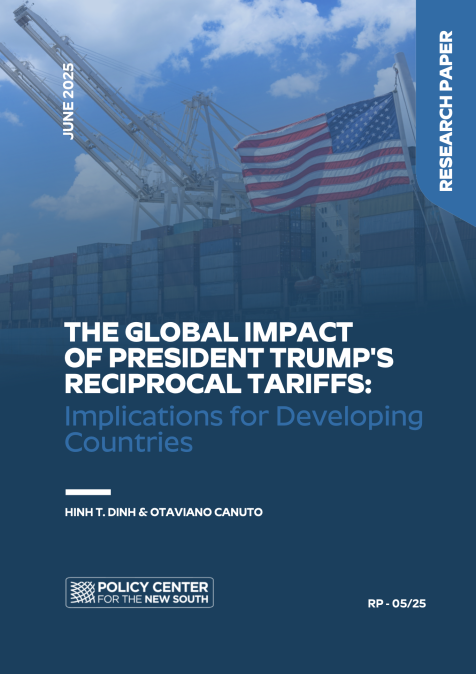The Policy Center for the New South (PCNS), in partnership with the Royal United Services Institute (RUSI), will hold a workshop at the occasion of the launch of the “Free Trade Zone Risk Assessment Tool”, scheduled to take place on Wednesday, June 9th 2021 at 3pm GMT. It has been demonstrated that, despite global advances like the publication of the OECD Code of Conduct for Clean Free Trade Zones (FTZs), private-sector businesses often find it difficult to distinguish between compliant (clean) and non-compliant (risky) FTZs. To remedy this gap, RUSI has developed a freely available online risk assessment tool that helps banks, insurance companies, shipping lines and freight forwarders assess their exposure to the risk of facilitating crime as a result of operating in an FTZ. This Free Trade Zone Risk Assessment tool enables businesses to assess their exposure to the risk of facilitating illicit trade or financial crime in any FTZ. Distinguish between FTZs that already comply with international standards and those that do not and dispel the perception that all FTZs are always high-risk. In this context, this workshop will feature a presentation of the tool and a discussion among experts on the challenges and best practices of assessing the risks of illicit trade and financial crime in FTZs. 15:00 -15:10 Introduction to the Panel Anton Moiseienko, Research Fellow, Centre for Financial Crime & Security Studies, Royal United Services Institute (RUSI) Alexandria Reid, Research Fellow, Organised Crime and Policing, Royal United Services Institute (RUSI) 15:10 -15:30 Presentation of the Free Trade Zone Risk Assessment Tool Anton Moiseienko, Research Fellow, Centre for Financial Crime & Security Studies, Royal United Services Institute (RUSI) 15:30 -16:10 Debate “The Moroccan Experience” Ilham Khalil, Ilham Khalil, Marketing, Communications and Corporate Relations Director, Tanger Med Youssef Briga, Head of the Investment and Free Zones Office, Administration des Douanes et Impôts Indirects Thomas Dournon, Strategic Governance Advisory, Business Intelligence, Risk & Compliance 16:10 -16:30 Q&A About the Speakers : Moiseienko Anton, Research Fellow, Centre for Financial Crime and Security Studies, Royal United Services Institute (RUSI) Alexandria Reid, Research Analyst, Organised Crime and Policing, Royal United Services Institute (RUSI) Ilham Khalil, Marketing, Communications and Corporate Relations Director, Tanger Med Thomas Dournon, Strategic Governance Advisory, Business Intelligence, Risk & Compliance Youssef Briga, Head of the Investment and Free Zones Office, Administration des Douanes et Impôts Indirects












